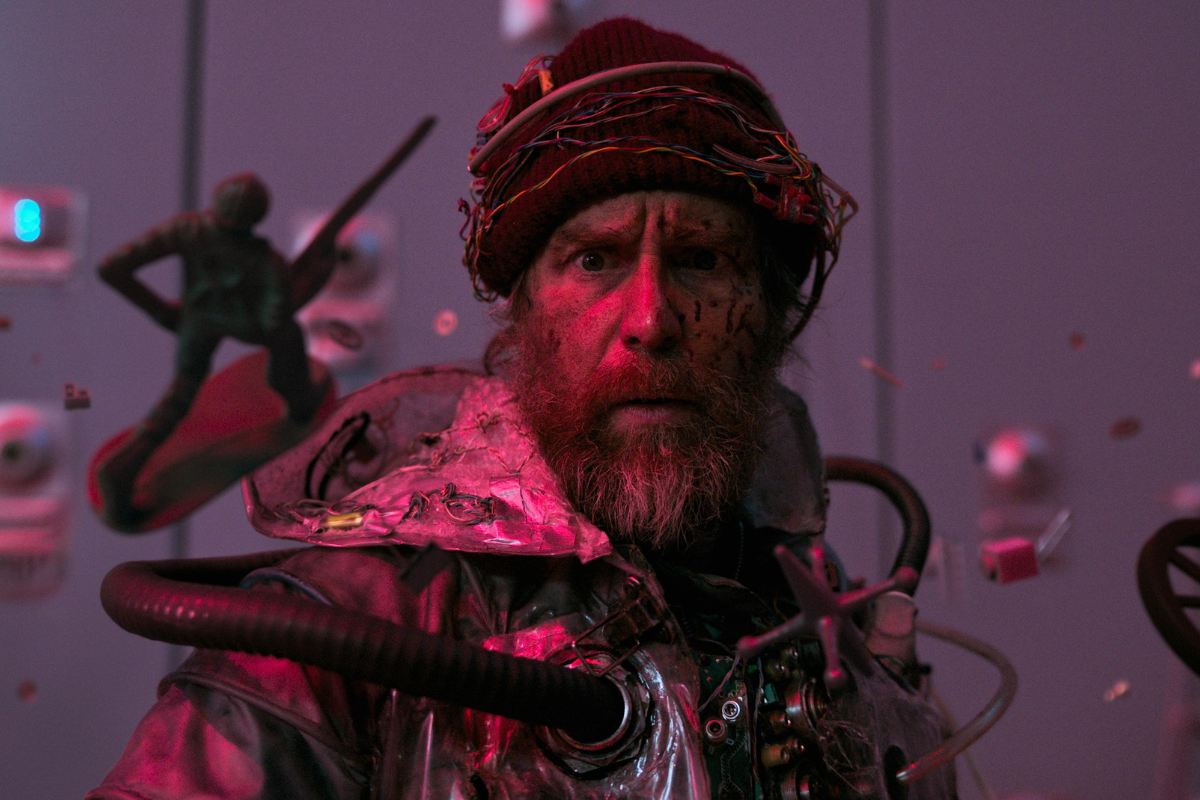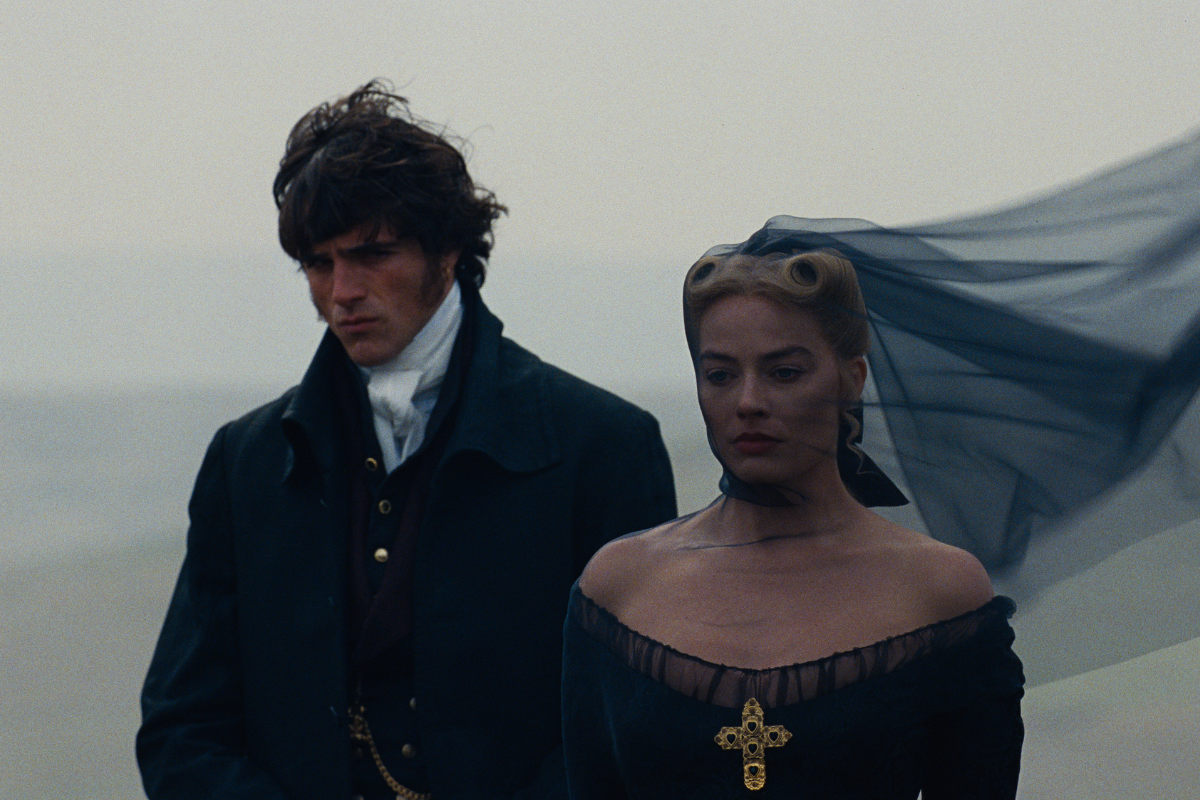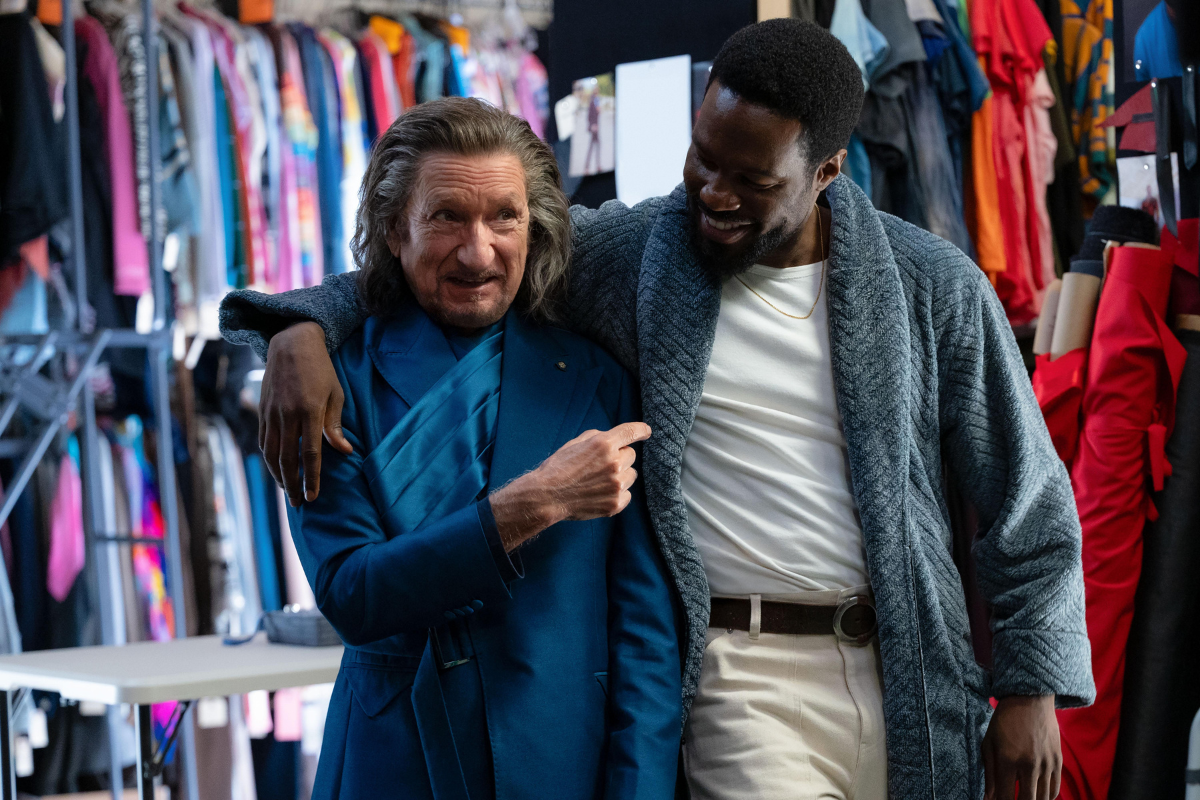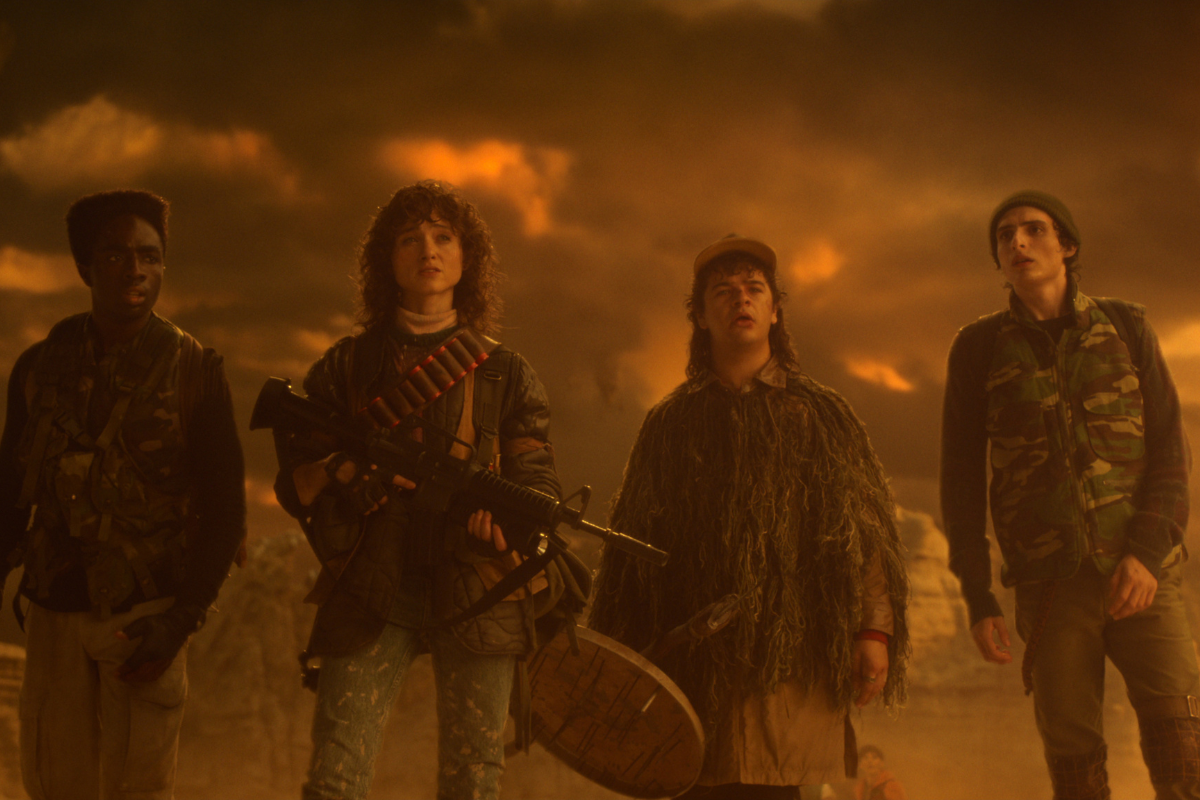Romantic comedies are rarely allowed to feel this ambitious, this visually imaginative, or this emotionally sincere. David Freyne’s Eternity arrives with the feather light charm of a classic studio romance and the conceptual confidence of something far stranger and braver. It takes place in an afterlife that resembles a pastel tinted hotel lobby filled with eternity salespeople and themed worlds that range from the glamorous to the absurd. Within that bright and playful setting lies a deceptively deep, sometimes messy, sometimes uproariously funny story about the kind of love we remember and the kind of love we build. There may be no such thing as perfection, but Eternity comes remarkably close for the romantic comedy genre. Blending the conceptual brilliance of The Good Place with the emotional clarity of Eternal Sunshine of the Spotless Mind, it excels on the charm of Elizabeth Olsen, Miles Teller, and Callum Turner, all supported by effortlessly funny work from Da’Vine Joy Randolph and John Early. If eternity were real, I would personally want it to look something like this film.
The premise is simple on the surface. Joan, played with radiant warmth by Elizabeth Olsen, has died after a long life. She arrives at a strange way station known as the Junction, a place that resembles a convention center crossed with a vacation resort. Souls have one week to choose where to spend their forever. The worlds on display include Studio 54 World, Beach World, Capitalist World, Weimar World with a very pointed note about the lack of Nazis, and many more that are both surreal and hilariously mundane. Joan faces an even more intimate decision. In this afterlife the soul returns to the age when it was happiest, which means Joan is greeted by two men. Her first love Luke, who died young in the Korean War, and Larry, her husband for almost seven decades. What follows is a love triangle stretched across time, memory, and the impossible idea of choosing one partner for the rest of existence.
It is a genuinely clever concept, one I had never seen handled quite like this, and the film leans into its whimsy with confidence. Freyne directs with a sincere affection for romantic messiness. He treats the afterlife not as a philosophical puzzle but as an emotional playground. The production design is instantly memorable. Every corridor of the Junction feels like a retro dream, filled with colorful world advertisements, smiling attendants, and small bureaucratic touches that make it feel lived in. The afterlife does not attempt grandeur. Instead it embraces something more honest. It looks like a place designed by a committee that wanted to make everyone happy even though no committee could possibly achieve that. The effect is both funny and unexpectedly moving.
Part of the film’s success comes from the cast, who collectively elevate what could have been a gimmick. Olsen is the soul of the film. She plays Joan with a delicate blend of confusion, hope, guilt, and aching nostalgia. The entire premise hinges on believing that Joan could truly love both Luke and Larry. Olsen makes that conflict specific and deeply human. Callum Turner gives Luke a kind of youthful magnetism. He embodies the fantasy of a first love preserved in amber, a person who never had the chance to disappoint or grow old. Miles Teller takes the opposite route. His Larry is gentle, grounded, sometimes frustrated, and sometimes very funny in his reactions to this cosmic inconvenience. He is the man who stayed, the partner who held her hand through the unglamorous decades. Teller’s work here is subtle and deeply moving.
The supporting cast adds its own charm. Da’Vine Joy Randolph plays Anna, Larry’s assigned afterlife coordinator, with impeccable comic timing. She somehow steals every scene without ever derailing the story. John Early brings his own brand of bright chaos as Joan’s afterlife coordinator, creating an afterlife that feels as ridiculous as it is fully realized. The comedy throughout the film is sharp. The script finds humor in everything from bureaucratic eternity paperwork to jokes about the Korean War that land with startling precision. The Junction is filled with quirky details, like a tunnel where souls walk through their memories performed as if by a school play, complete with cut out backdrops and slightly uneven acting. The suggestion that darker memories hide behind these backdrops gives the film a faint but powerful sense of melancholy.
For all its creativity, the film is not without imperfections. The pacing is uneven, especially in the last third where the emotional urgency suddenly spikes. There are moments when the film reaches very hard for catharsis, almost pleading with the audience to cry. The attempt is earnest and occasionally effective, but the melodrama stretches beyond what the story naturally supports. There are also stretches where the rules of the afterlife feel arbitrary, added only to create stakes. The 7-day limit feels mostly like a narrative device rather than a natural extension of the world. That said, these flaws do not break the film. Instead, they highlight how ambitious it is for a romantic comedy to attempt this level of emotional and conceptual layering.
The emotional core is not the metaphysics. It is the simple question at the heart of Joan’s dilemma. Should the love of your life be the one who swept you off your feet, or the one who stood by you through everything. A rare delicacy remembered from a distant past or the comfort food that nourished you for an entire lifetime The film never presents a simplistic answer. Instead, it values both forms of love, even as the story pushes Joan toward a final choice. The beauty of Eternity lies in how it honors the power of first love without dismissing the depth of a partner who stayed. It is sincere, a little anxious, and very grounded. In that sense it mirrors the fragility of real relationships.
There are sequences that reach a kind of cinematic magic. The memory corridor near the end, which mirrors a beloved moment from Eternal Sunshine, stands out as one of the most affecting scenes in any recent romantic comedy. The film understands how memory shapes us, how the small gestures we forget are the ones that define who we become. It knows that our greatest loves are often captured in moments we barely notice, and it gives Joan the chance to rediscover them. The filmmaking becomes gentle and observant. For a few minutes the conceptual chaos quiets and the film finds a truly beautiful rhythm.
Even with its small missteps, Eternity is a triumph for the genre. It is romantic without cynicism, funny without strain, and imaginative without losing its emotional grounding. It perfectly nails that delicate balance between a clever premise and genuine heartfelt emotion. I laughed, I teared up, and by the end I was fully swept away. For anyone who loves stories about the strange and wonderful ways we carry love through time, this is one of the best romantic comedies we have had in years. It is sweet, inventive, and full of life, which is delightfully ironic for a film about the afterlife.
Eternity is now playing in Theaters.







